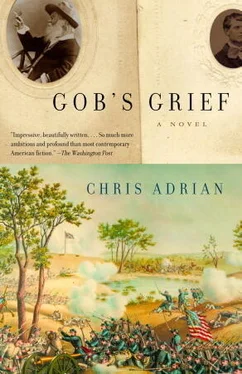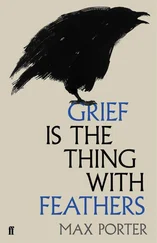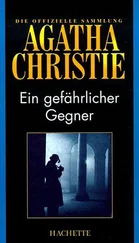“What is your religion, Miss Trufant?”
“The religion,” Maci said, “of earthly reform.”
“I think you made that up just now. One day this spot will be holy. ‘Here Miss Trufant founded the religion of earthly reform!’” He laughed, and Maci found herself laughing with him.
“Very well, Mr. Whitman. Let me clarify. I do not hope for Heaven, except as we can approximate it on earth. I am not religious.”
“Your life must gape like a hole,” he said. Maci thought this a harsh accusation to make to a practical stranger. Yet he laughed again.
Dr. Woodhull had turned his attention to a mechanical thresher, and was touching it affectionately. Maci said, “I say science is his religion because I think he is overfond of machines. Don’t you think it is possible to be overfond of machines?”
Mr. Whitman said nothing for a moment. Thinking he might be a little deaf, Maci was about to repeat her question when he spoke. “Has he shown you his … thing?” he asked.
“You mean his engine? He has. I think I must have been the last person in the world still ignorant of its existence.” Now it can be told! her hand had written, when she went home that night in August, and had proceeded to bore her with the particulars of its construction. Maci discovered, in the next few days, that every Claflin knew about the engine, though none of them would talk much about it. Tennie would only say that she thought it was wonderful and sad. Mrs. Woodhull said it was her son’s work to build, as it was her own work to reform. Even Dr. Fie knew about the thing. Indeed, he was assisting in its assembly.
“Then you are not fond of it, Miss Trufant?”
“It is a functionless machine. It is, as you say, a thing, and not to be liked or disliked.” Maci was tired, suddenly, of engine-talk, and decided to alter the course of their conversation. “But I did like your poem,” she said, though she hadn’t really.
“Then you should take it.” He held out his copy to her, folded up to a square the size of his palm.
“Oh, I couldn’t,” she said. “I certainly couldn’t. I’ll get a copy from out of the papers tomorrow.”
“No, please,” he said, his voice rising. He angled his head to meet her eyes again, his stare rude and intense. “I want you to take this, too.” He reached for her with the paper, pressing it against her hand, then letting it go.
It fell to the ground. Dr. Woodhull, returned from his close examination of the thresher, picked it up and presented it to her silently. “Walt,” he said, “come and see the sewing machines!” He ran off, scampering like his boy, Pickie. Mr. Whitman followed him, and Maci looked down at the dirty old piece of paper he’d made a gift to her. It was full of writing, front and back, used and used again until every inch was covered with ink. She unfolded it and brought it up close to her face to read the poet’s script. On the front was the poem, on the back, a list: John Watson (bed 29), get some apples; Llewellyn Woodin (bed 14), sore throat, wants some candy; bed 14wants an orange.
Dear Aunt Amy , Maci wrote in another unsent letter. I am doing well here in New York, proceeding sensibly from day to day and living a good honest life. I know, Aunt, that you worry about me, and that to your casually observing distant eye it may seem that my urge towards free thinking has plumped into actual vice, and that I am engaged in foolish, scandalous, even dangerous behavior. Let me reassure you that this is, in fact, not the case.
He is a magus , her left hand wrote, creeping over with an extra pen to crowd her right hand off the paper. And though he is small, his hips are handsome. She pushed the hand away.
Yes, I associate with him. Yes, I am alone with him in his house. Yes, we are awake till very late in the evening. We discuss science and mortality and politics. He has got a keen interest in his mother, for all that he pretends indifference. He hates her, I think, because she is not like him, because she does not spend her whole life stretched on the grave of his dead brother. She works in the world to change the world, while he cloisters himself in a decaying mansion and wastes his obvious talents making his grief for his brother manifest in iron and glass and copper. I tell him as much, and he says, “I like how you are honest with me, Miss Trufant.”
I cannot make you believe in his work, but he can make you believe in his work. You believe in his mama as she changes what can’t be changed, why can’t you do him the same favor?
How comforting it would be , Maci wrote to Aunt Amy, to believe that the whole war happened for reasons more cosmic than political, to believe that all the war’s deaths could be undone, that Rob and all the others died only so they could come back to us. But Aunt, comfort is a clue to falseness, and the ease of a thing can make it not so.
Sister, you don’t believe in anything good.
“I will create a distraction,” Mrs. Woodhull told Maci, “while you do the deed.” They had a plan to cast a vote in the November elections of 1871. A whole contingent of women, accompanied by a few male reporters, marched down from Thirty-eighth Street to the polling place for the twenty-third district of the twenty-first ward, a furniture store on Sixth Avenue. While Mrs. Woodhull, with Tennie by her side, made what came to be known as her “Rats and Spiders” speech, Maci made a lunge for the ballot box. Her shooting hand felt to her like a bullet, and she suspected it would kill any man who got between her and the vote that day. But the attendant — a Tammany thugee, Maci was sure — slapped her hand down, scattering her tickets whole feet from the box.
Maci thought, later, that if she’d only had both hands functioning at the time of her attack on the ballot box, she might have performed some dexterous switcheroo to confuse and defeat her adversary. But for weeks her left hand had been immobilized in a split and wrapped in thick white bandages. The senior Dr. Woodhull had indulged her when she claimed to have sprained it. “What injury there is, is not severe,” he said, turning her hand over in his skeleton claw. But he did as she asked. “Please,” she said, “would you bind it up a little more? The bandages are a comfort.” Three times he tried to stop when her hand was still not sufficiently wrapped, but she urged him on. She liked to put the hand on the desk, next to the paper and the pen. It would flop and twitch. “Is there something you wanted to tell me?” she’d ask it.
“Next year, my star,” Mrs. Woodhull told Maci, after her failure, “I know we will succeed.” Mrs. Woodhull led the voting party back to her house, where she fed and liquored everyone while they waited for news of the returns. Maci sat by herself on a bench secluded by ferns. A reporter found her there.
“What have you got to do with all this?” he demanded. Maci decided to lie to him.
“My mother,” she said, “is a leader in the woman suffrage movement. I may not tell you her name — suffice to say that she is a member of the Boston Coven. Do you understand my meaning? What I am saying is that she may be Lucy Stone, or she may not! Anyhow, Mother is a great and secret admirer of Mrs. Woodhull. She has called her an apotheosis and the Jean d’Arc of Woman Suffrage. Yet publicly she excoriates Mrs. Woodhull for her social theories, even as she embraces them in her private behavior. Is this fair, sir? I think it is not, yet family loyalties keep me from speaking out. I know only too well how blood is thicker than water.”
“Are you an admirer of Mrs. Woodhull, then?”
“Is the sun a round ball of fire?” She asked him for a glass of water, hoping to sneak away while he fetched it, but he returned in an instant with champagne for her and whiskey for himself. He interpreted Maci’s exasperated sigh as an invitation to sit next to her. It was Tennie’s fault that the male reporters of New York expected a kiss from any lady who resided at Number 15 East Thirty-eighth Street, because Tennie was always drawing them aside for kisses.
Читать дальше












